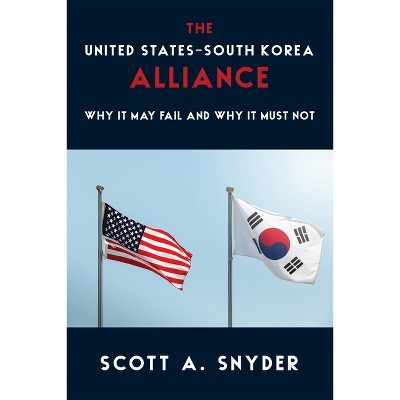Sponsored

Alliance Security Dilemmas in the Iraq War - by N Ishibashi (Hardcover)
In Stock
Sponsored
About this item
Highlights
- This book explains and elaborates the concept of alliance security dilemma through a case study of two similar countries caught in the same situation: Germany, which opposed the US decision to attack Iraq in 2003, and Japan, which supported it.
- About the Author: Natsuyo Ishibashi is a postdoctoral fellow in the Japan Program, Department of Sociology and Social Science, Norwegian University of Science and Technology (NTNU).
- 211 Pages
- Political Science, International Relations
Description
About the Book
"The book explains why Germany opposed the U.S. decision to attack Iraq in 2003, whereas Japan supported it, despite the two countries' many similarities. Employing the concept of alliance security dilemma - constituted by the twin fears of abandonment and entrapment - the author argues that the two countries pursued opposite policies toward the Iraq War because the level of Germany's alliance security dilemma in its relationships with the U.S. was higher than Japan's. The two countries' alliance security dilemma with the U.S., however, is not derived from the mere presence or absence of external threats. Instead, it is a product of: (1) the regional security environments along with U.S. security commitment to the two countries, (2) the type of alliance institutions to which each country belongs, and (3) the characteristics of their military institutions"--Book Synopsis
This book explains and elaborates the concept of alliance security dilemma through a case study of two similar countries caught in the same situation: Germany, which opposed the US decision to attack Iraq in 2003, and Japan, which supported it.Review Quotes
"Ishibashi shows a sophisticated command of two very different political systems Japan and Germany in her careful analysis of why the two countries varied in their level of support for their US ally in the 2003 Iraq War. She offers a detailed process tracing of the decisions linked to an alliance theory fear of entrapment, usefully updating and building upon the path-breaking work of Thomas Berger's seminal comparative study of both countries' 'cultures of antimilitarism.'"
Andrew L. Oros, associate professor of Political Science and International Studies, Washington College
"Ishibashi's volume is one of the first to systematically compare the operation of the key concept of the security dilemma across two states, here Japan and Germany. In so doing, with its comprehensive theoretical and empirical analysis, this work makes important contributions to alliance theory and our understanding of Japanese and German postwar security policy. It deserves to be essential reading alongside other existing comparative studies of these two states' security policies, but in certain aspects supersedes these by bringing new insights into the analysis through examining regional security environments, alliance institutions, and the nature of military organizations."
Chris Hughes, professor of International Politics and Japanese Studies and head of the Department of Politics and International Studies, University of Warwick
About the Author
Natsuyo Ishibashi is a postdoctoral fellow in the Japan Program, Department of Sociology and Social Science, Norwegian University of Science and Technology (NTNU).











